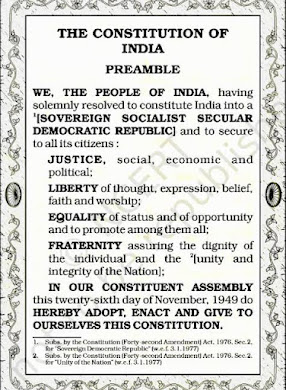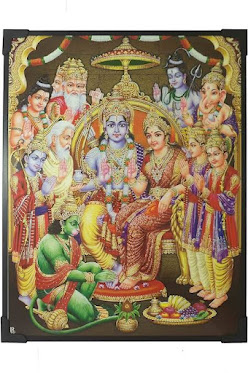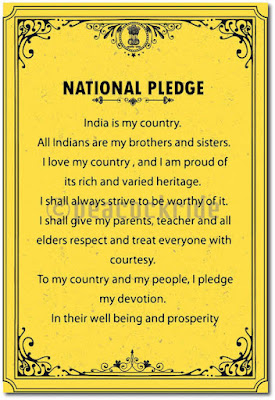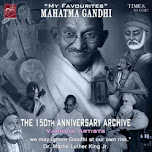Musings and Thoughts about Lord Ram 2024
Well the long awaited consecration of the Ramjanmabhoomi Temple has been completed. Ramayana the story of Lord Rama has held all of India spellbound. Even countries outside India like Thailand, Indonesia, Malaysia and Cambodia though predominantly Buddhist have had Lord Rama as part of their culture and folklore. Stories from this epic and the various characters especially Lord Rama and the protagonist Ravana along with so many characters like his father, mother, step-mother, brother, wife along with devotee Hanuman and the various sages , birds and animals have created a tapestry in which all of India and it’s people are woven. Region wise and community wise the tale has changed and got modified and enriched.
The images across the country were ones of celebration and pomp and glitter. The cries of Jai Shri Ram were heard. Jai was loud and aggressive Shri was soft and Ram was in a middle tone. It was almost like a war cry of the triumph of majority over a minority.
I am a Parsi born in 1961, a micro minority community born in a privileged household in a middle class family of educated enlightened parents both of whom had witnessed India's freedom and partition moment. In our childhood we were surrounded by books and made fully aware of the importance of education and open minded liberal thinking. Unlike other Parsi families who were more in awe and admiration of the British my parents were imbued with a sense of patriotism and optimism about the story of India. My mother was born in Allahabad in UP but grew up in Mumbai and was told that she was invited to a birthday party of Indira Gandhi. They were close friends of Feroze Gandhi family. My mother was a Hindi teacher who had passed advanced Hindi exams and was familiar with writers like Premchand, Harivansharai Bacchan and Nirala. My late father was a lawyer who gave up his stable position of District Magistrate in Gujarat to settle as an advocate in the large and more competitive city of Mumbai.He had personally seen and met the Father of the Nation and was inspired enough to continue use of Khadi in some form or other.
My childhood memories and school experiences were ones of security, happiness and in school my experiences was of meeting different people from all walks of life. I soon started relating to persons of different religions, socio-economic classes and cultures. My parents explained the difference of us and them and even as they instilled pride in my Parsi lineage and roots taught me to accept the difference as parts of plurality of India. The pledge in all our textbooks was India is my country and all Indians are my brothers and sisters ............. We read it and made friends, celebrated festivals of all religions with enthusiasm. We learnt the Indian epics, Ramayana and Mahabharata and enjoyed the stories and the idealism. The idea of India and its democracy and the constitution were strongly inculcated in us. While we saw the differences and sometimes questioned or found them illogical and even strange we did not see any one community as them vs us. I do confess that as I grew in age and and maturity I had started developing some superiority complex against backward classes especially when the reservation policy resulted in merit students being deprived of their seats in higher education. The story of Partition of India and the Hindu Muslim divide was always the elephant in the room which we chose to ignore or pass it over.

The Hindi film industry and the stories of Mahatma Gandhi, Jawaharlal Nehru, Sardar Patel, Maulana Azad, Khan Abdul Gaffar Khan and so many others inspired us to believe and feel secure in a democratic country. Songs like छोड़ो कल की बातें, कल की बात पुरानी नए दौर में लिखेंगे मिलकर नई कहानी हम हिंदुस्तानी, हम हिंदुस्तान Leave aside yesterday's matters, yesterday's matters are old. We will write a new story together in the new era.We are Indians, we are Indians. Similar songs about shared culture and movies in our childhood like Amar Akbar Anthony at least made people accept some kind of connection as Indians as an identity as against the narrow identities of our past. Our shared food habits clothes made for a delightful khichdi which made India a diverse pluralistic society. Unity in diversity was a slogan given to us in school which we tried to make it a lived experience.
As I was more and more exposed to the outside world, I started realising that I was living in a bubble of privilege and there were deep divisions in society. Many of our citizens were divided on caste lines and the humiliation and violence of lower castes was a reality. Issues of religious divisions especially of Hindu Muslims on subjects like cow slaughter, love jihad and the moves to encourage conversion were real at the absract level but we learnt to co-exist as neighbours depending on each other even as we steered clear of controversies. Beliefs that the polygamy and high birth rates among Muslims could create a revival of Muslim rule were still relevant to many. The constitution and its values were yet to percolate deeply in the national consciousness. The tragedy of the country that our leaders, politicians used these divisions and created divisions among people. The politicalization of the police forces helped the ruling dispensations to favour their vote banks and undermine their opponents. No political party was innocent and I remember annual riots were a feature of some areas and everybody knew the forces behind them. I do agree that the Hindu fundamentlist feeds on the Muslim fundamentalist and vice versa. However, there is a distinct difference between the abstract and the concrete. On an abstract level we hate the stereotype images of the other, but individually we see no differences and can feel and forge friendships cutting across all differences. I have seen this play out all my life and so many daily examples in my work at Masina Hospital have reinforced these beliefs.
Is there a way out? Yes economic prosperity, development, education and health are the best panacea for coming out of this downward spiral of hate and othering people. The propagation of the essential unity of religion along with true respect for other religions as shown by our Father of the Nation in his regular all faith prayers can certainly work wonders. India is the home of the greatest religions and has embraced and enhanced so many religions that I for one do not believe that we will lose our pluralism. https://www.deezer.com/en/album/7432833 link to the all faith prayer.
As in all things India is a country where any statement on the country can be true or equally false. So the statement we are a tolerant nation is true the opposite can be true too. I will remain an eternal optimist.
On January 30, 2024 we will remember the martyrdom of Gandhi who was assasinated by a misguided Hindu and died with the words He Ram! on on his lips which was the words he uttered as his breath and life consciousness left him. He has left behind a legacy which has inspired so many struggles of the oppresed against the oppressor. So we will end this week from Jai Shree Ram to He Ram with Republic Day and we can learn our lessons from all these events. I hope we reduce the volume of triumphant Jai Shree Ram and amplify the Preamble of India's Costitution and usher in peace through He Ram we will have come out all the better and live another day with more hope than despair.
Vispi Jokhi









Comments